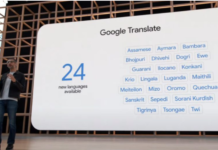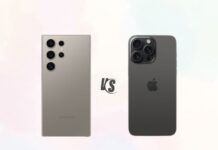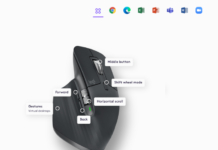Forget Fingerprints Scanner, brainprints could be new Password
Using the brain imaging and a number of words and images, it will scan your brain to verify a person’s identity. The facial recognition system is a computer application capable of identifying or verifying a person from a digital image or a video frame from a video source. It is also a great technology but there are some problems, it requires high-end equipment, like a Good camera on your system. Whether or not it’s the wave of the future for consumer electronics, it’s now got competition. Binghamton University has come up with a biometric identification system that scans your brain – Brainprints – to verify a person’s identity.
Brainprints or the way a human brain responds to certain words or images could soon take the place of fingerprints or passwords to verify a person’s identity and ensure better security, says a new study.
A team of researchers, led by Assistant Professor of Psychology Sarah Laszlo and Assistant Professor of Electrical and Computer Engineering Zhanpeng Jin, recorded the brain activity of people wearing an electroencephalogram headset while they looked at a series of 500 images designed specifically to elicit unique responses from person to person — e.g., a slice of pizza, a boat, Anne Hathaway, the word “conundrum.” Each image flashed on a monitor for only half a second.
In the study, the researchers at Binghamton University in the US observed the brain signals of 45 volunteers as they read a list of 75 acronyms, such as FBI and DVD.
They recorded the brain’s reaction to each group of letters, focussing on the part of the brain associated with reading and recognising words.
The researchers found that the participants’ brains reacted differently to each acronym enough that a computer system was able to identify each volunteer with 94 percent accuracy. The results suggest that brainwaves could be used by security systems to verify a person’s identity.
“If someone’s fingerprint is stolen, that person cannot just grow a new finger to replace the compromised fingerprint — the fingerprint for that person is compromised forever,” said study co-author Sarah Laszlo, assistant professor of psychology and linguistics at Binghamton University in the US.
Fingerprints are ‘non-cancellable.’ Brainprints, on the other hand, are potentially cancellable.
It’s not so easy to Hack or steal someone’s Brainprints – If a criminal tried to force someone, at gunpoint, to use his or her Brainprints, the person wouldn’t have the capability to do so.
Brainprints or brain biometrics are appealing because they are cancellable and cannot be stolen by malicious means the way a finger or retina can, the researchers said.
“The expense of the equipment and the amount of time that it takes to collect a Brainprints is, at least now, much too long for someone to want to use it to get into an iPhone or get into a computer, because you don’t want to spend two minutes recording brain activity every time you want to look at your phone,” Jin says.
Once the Brainprints of a person is established, it takes several minutes to collect a fresh Brainprints in order to verify the identity of that person.
“We tend to see the applications of this system as being more along the lines of high-security physical locations, like the Pentagon or Air Force Labs, where there are not that many users that are authorized to enter,” Zhanpeng Jin, assistant professor at Binghamton University, said.















































